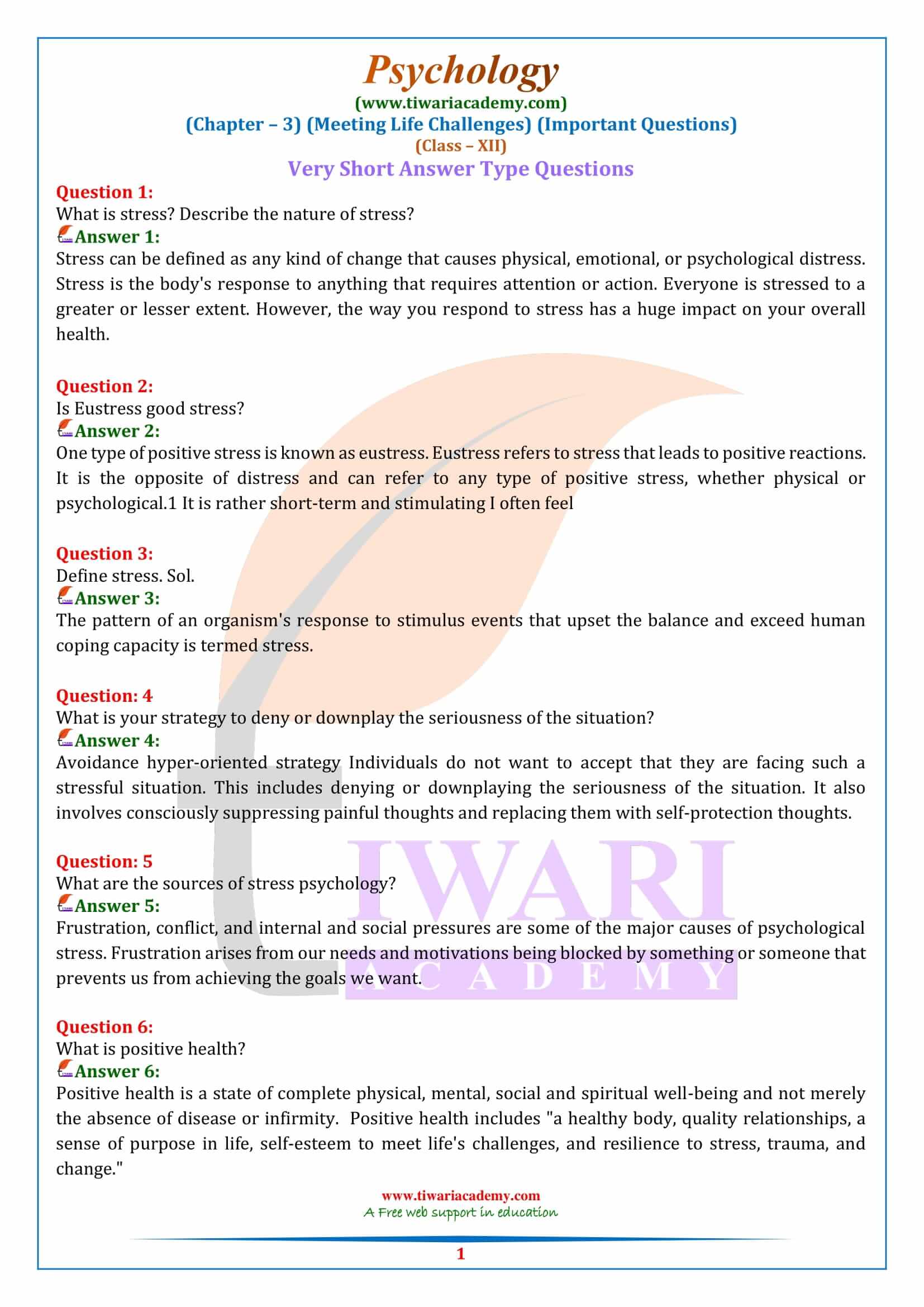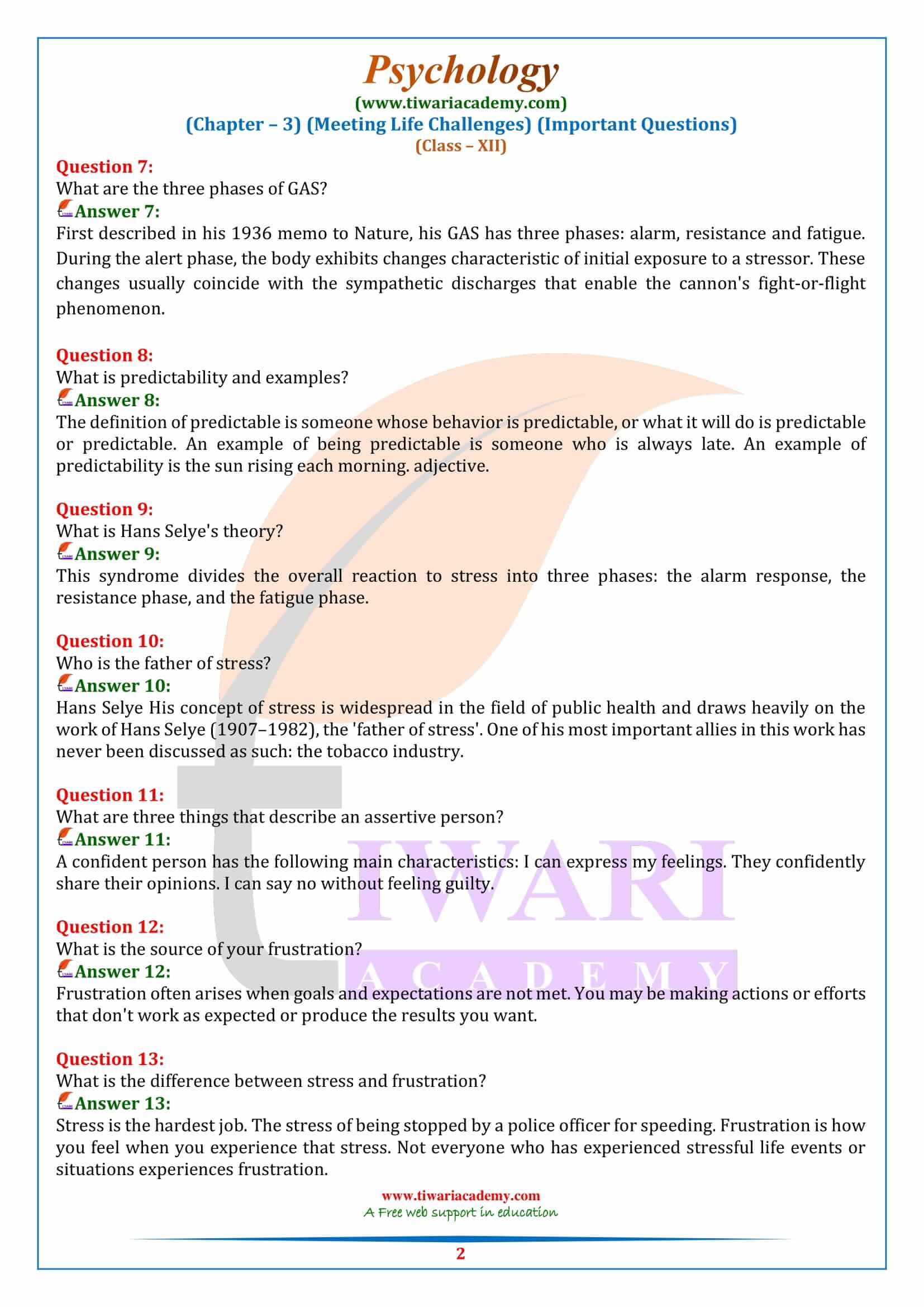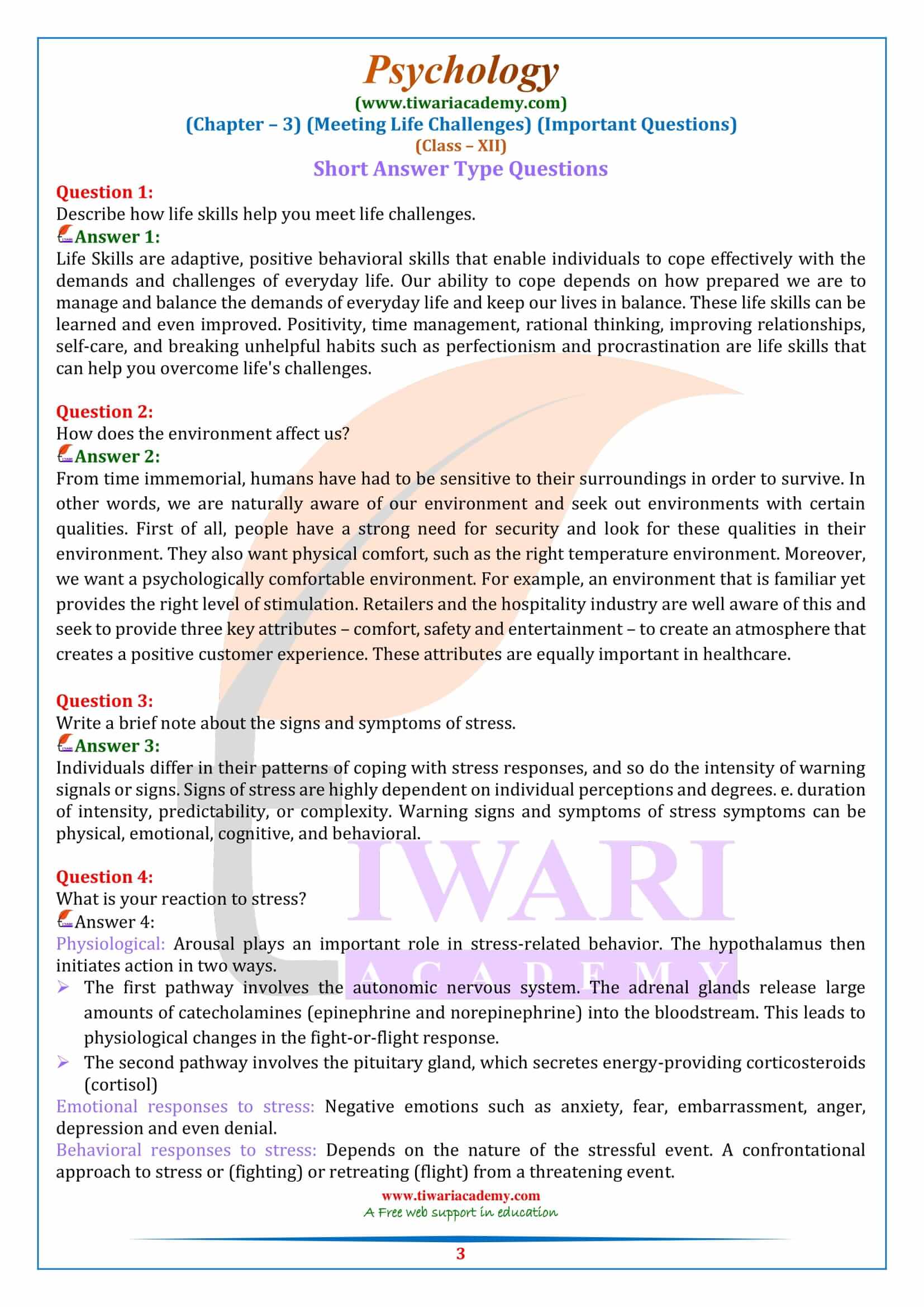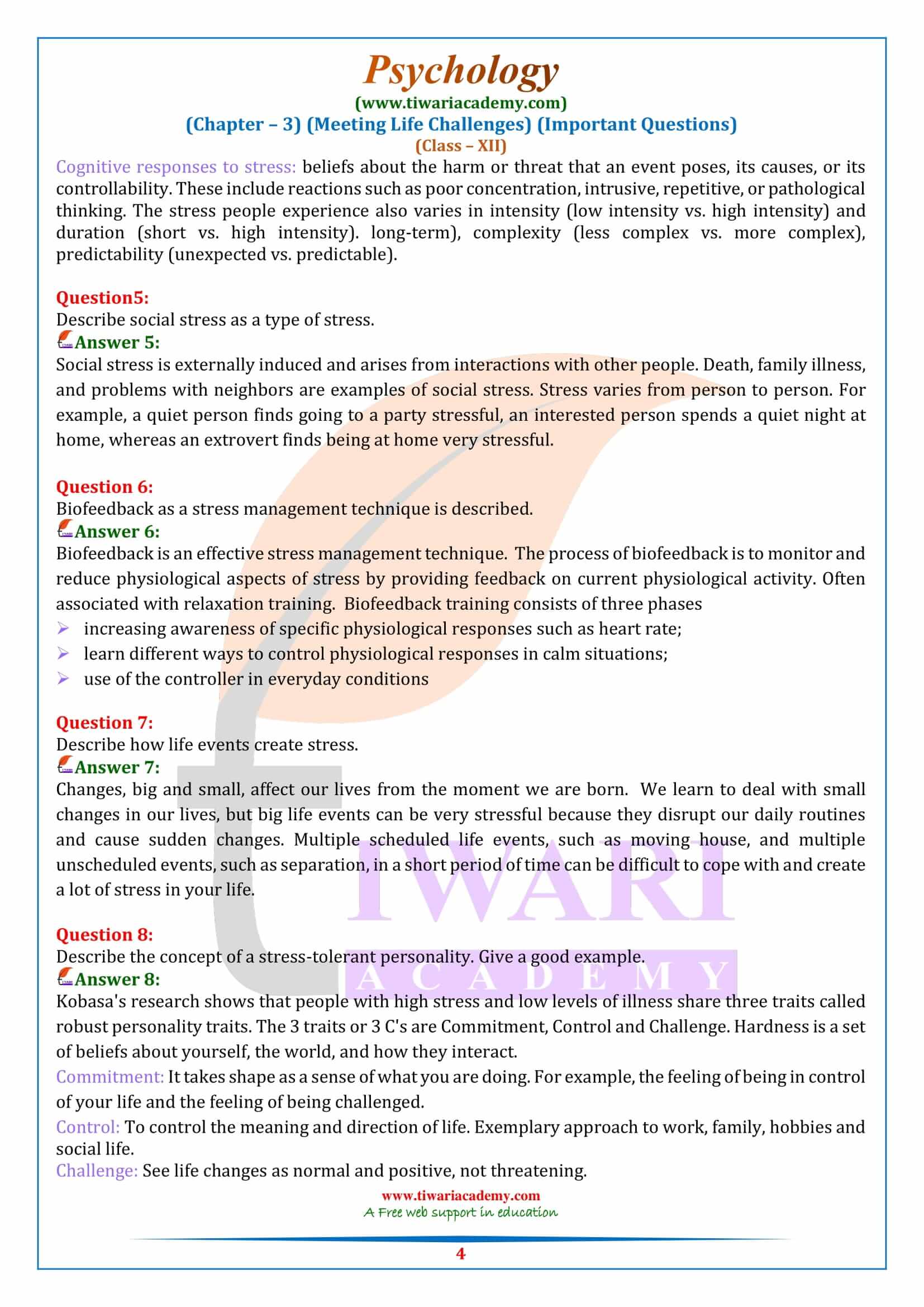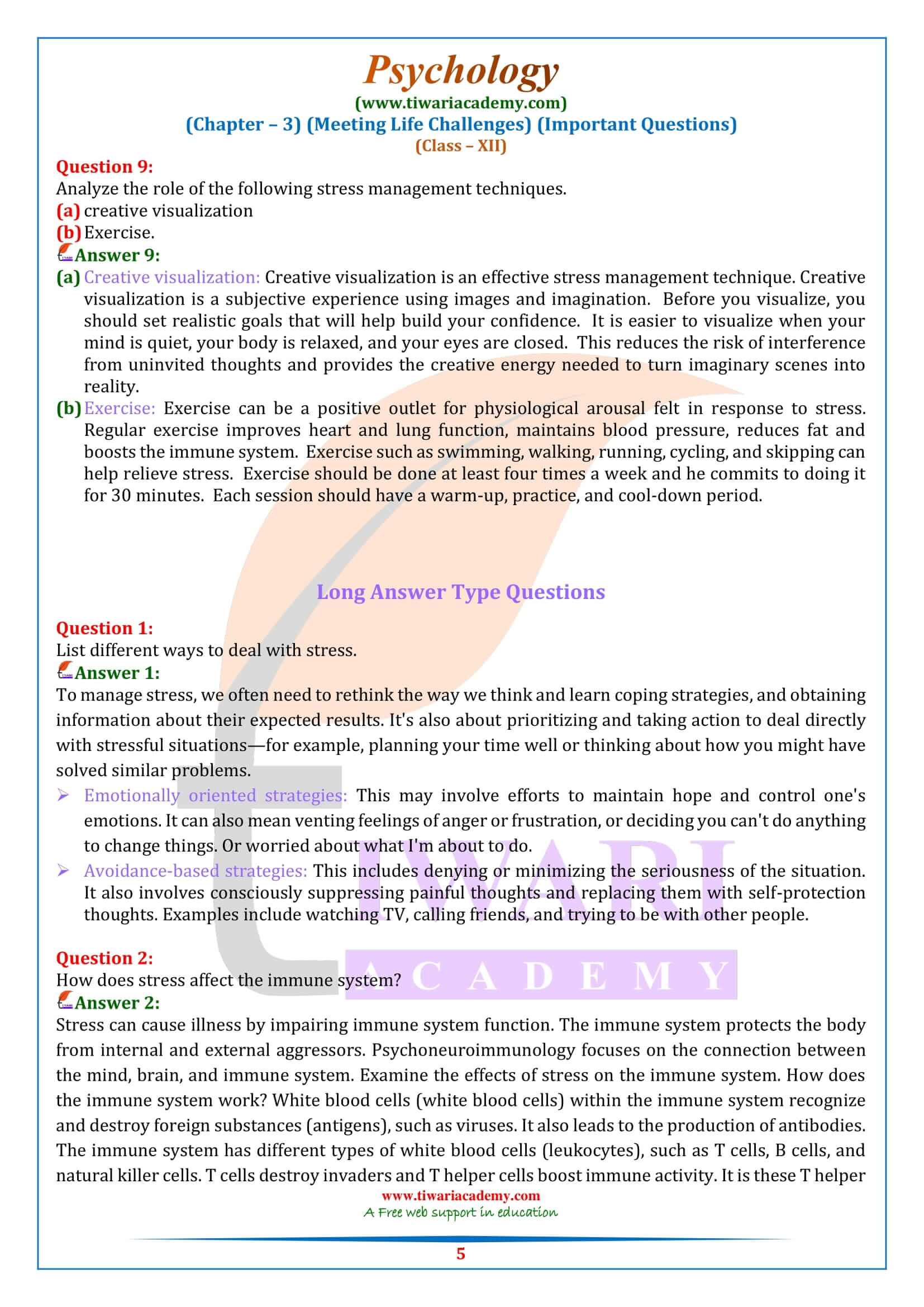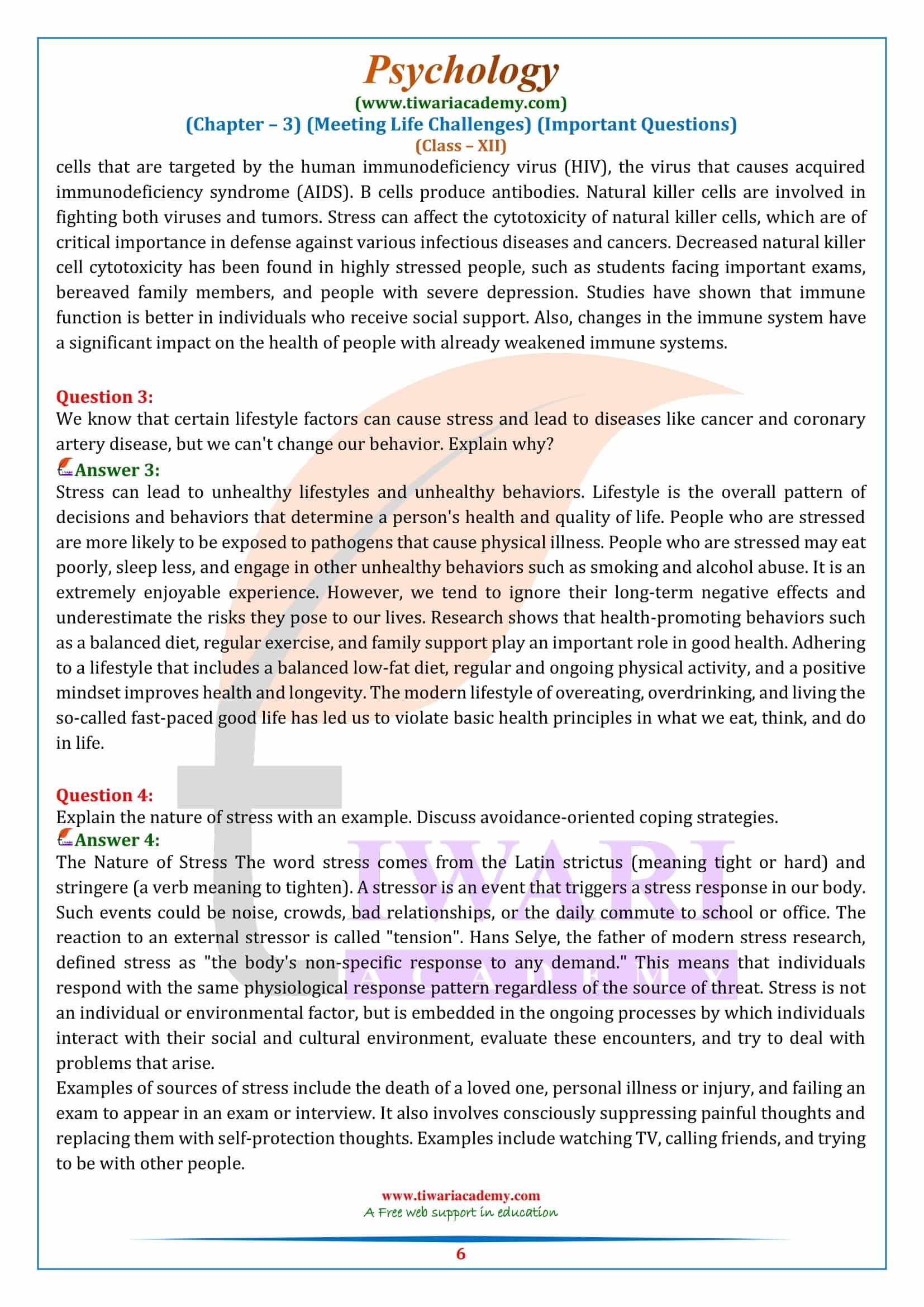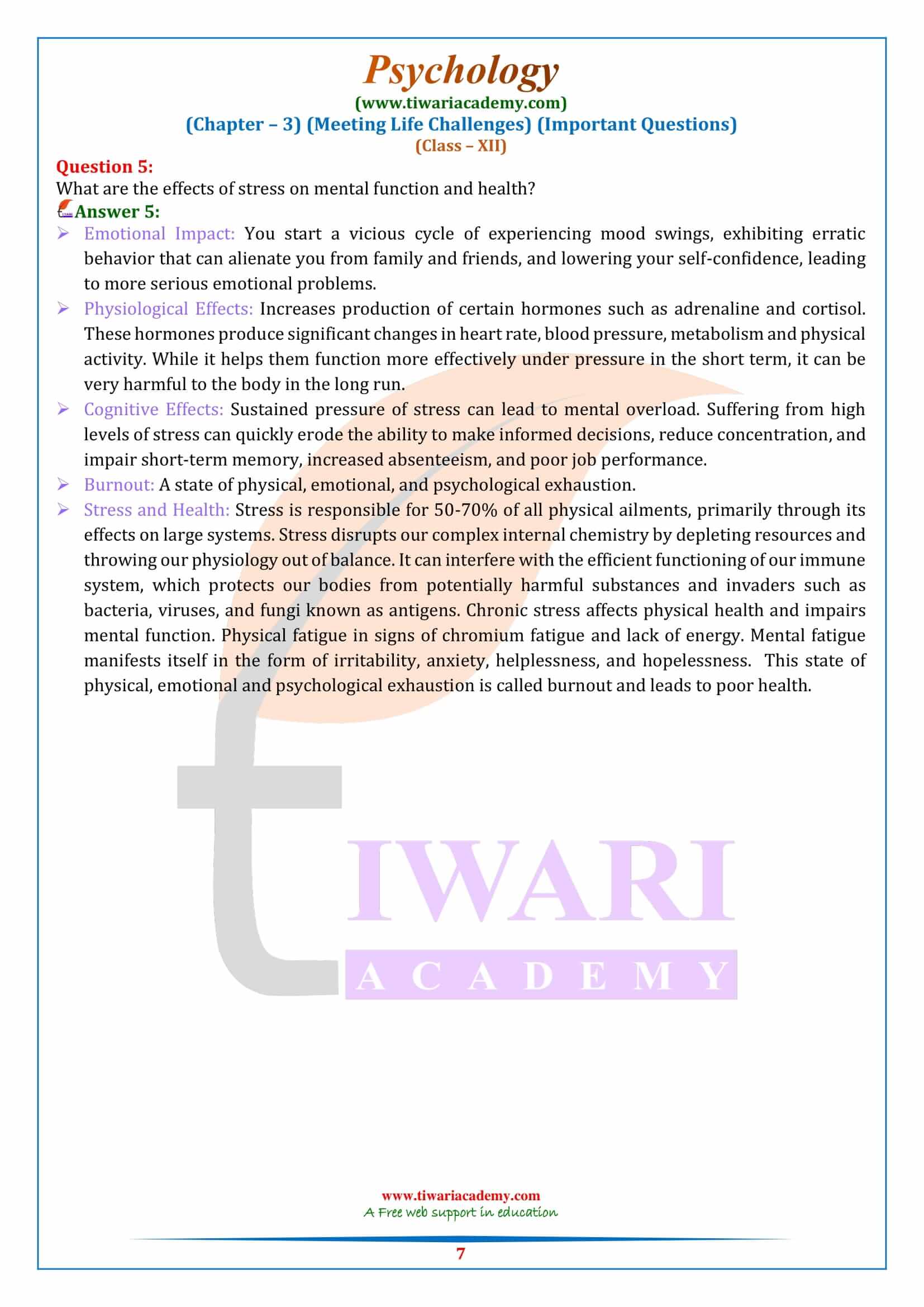Class 12 Psychology Chapter 3 Important Questions of Meeting Life Challenges in simplified format for English Medium students studying for session 2025-26. Get the help through Class 12 Psychology Chapter 3 Extra Questions during the exams to prepare notes.
Class 12 Psychology Chapter 3 Important Questions
Class 12 Psychology Chapter 3 Extra Questions Answers
How does the environment affect us?
From time immemorial, humans have had to be sensitive to their surroundings in order to survive. In other words, we are naturally aware of our environment and seek out environments with certain qualities. First of all, people have a strong need for security and look for these qualities in their environment. They also want physical comfort, such as the right temperature environment.
Moreover, we want a psychologically comfortable environment. For example, an environment that is familiar yet provides the right level of stimulation. Retailers and the hospitality industry are well aware of this and seek to provide three key attributes – comfort, safety and entertainment – to create an atmosphere that creates a positive customer experience. These attributes are equally important in healthcare.
Describe how life skills help you meet life challenges.
Life Skills are adaptive, positive behavioral skills that enable individuals to cope effectively with the demands and challenges of everyday life. Our ability to cope depends on how prepared we are to manage and balance the demands of everyday life and keep our lives in balance. These life skills can be learned and even improved. Positivity, time management, rational thinking, improving relationships, self-care, and breaking unhelpful habits such as perfectionism and procrastination are life skills that can help you overcome life’s challenges.
What is the difference between stress and frustration?
Stress is the hardest job. The stress of being stopped by a police officer for speeding. Frustration is how you feel when you experience that stress. Not everyone who has experienced stressful life events or situations experiences frustration.
Write a brief note about the signs and symptoms of stress.
Individuals differ in their patterns of coping with stress responses, and so do the intensity of warning signals or signs. Signs of stress are highly dependent on individual perceptions and degrees. e. duration of intensity, predictability, or complexity. Warning signs and symptoms of stress symptoms can be physical, emotional, cognitive, and behavioral.
Describe social stress as a type of stress.
Social stress is externally induced and arises from interactions with other people. Death, family illness, and problems with neighbors are examples of social stress. Stress varies from person to person. For example, a quiet person finds going to a party stressful, an interested person spends a quiet night at home, whereas an extrovert finds being at home very stressful.
Biofeedback as a stress management technique is described.
Biofeedback is an effective stress management technique. The process of biofeedback is to monitor and reduce physiological aspects of stress by providing feedback on current physiological activity. Often associated with relaxation training. Biofeedback training consists of three phases:
- increasing awareness of specific physiological responses such as heart rate;
- learn different ways to control physiological responses in calm situations;
- use of the controller in everyday conditions.
Describe how life events create stress.
Changes, big and small, affect our lives from the moment we are born. We learn to deal with small changes in our lives, but big life events can be very stressful because they disrupt our daily routines and cause sudden changes. Multiple scheduled life events, such as moving house, and multiple unscheduled events, such as separation, in a short period of time can be difficult to cope with and create a lot of stress in your life.
Who is the father of stress?
Hans Selye: His concept of stress is widespread in the field of public health and draws heavily on the work of Hans Selye (1907–1982), the ‘father of stress’. One of his most important allies in this work has never been discussed as such: the tobacco industry.
